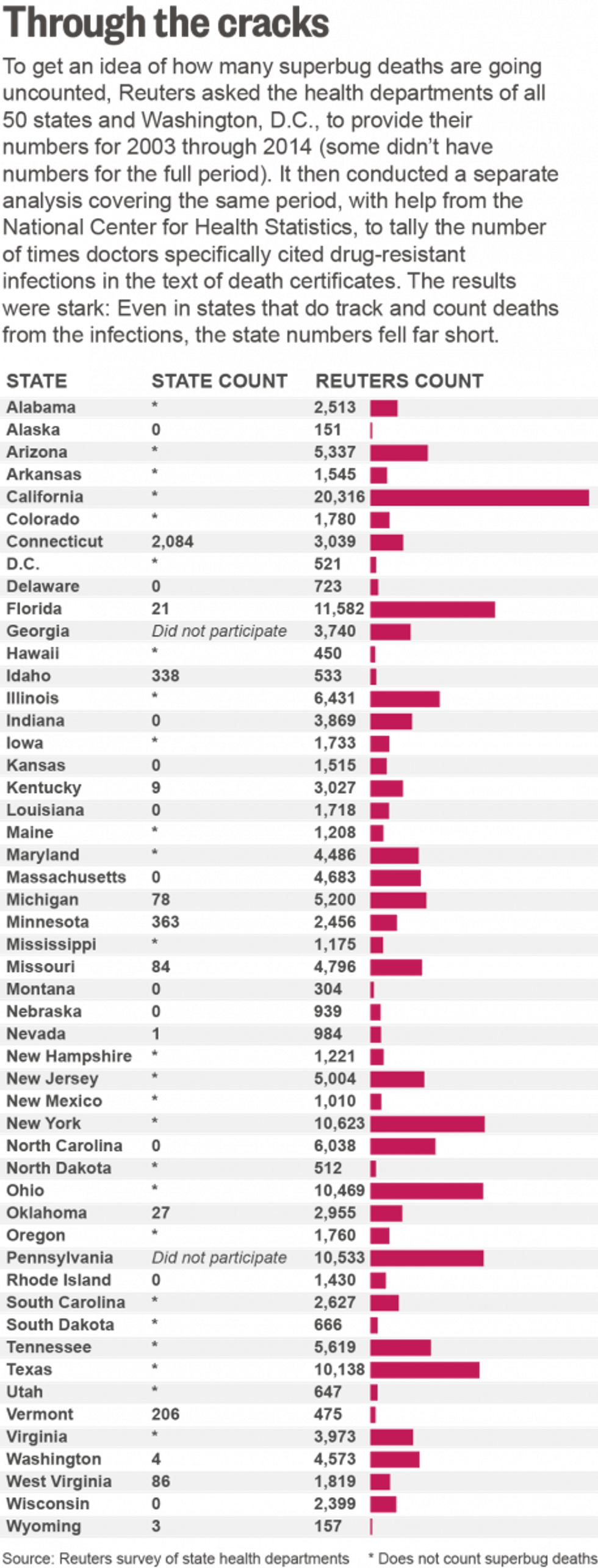Deaths related to antibiotic-resistant infections are going uncounted in the United States, a new Reuters investigation reveals, "hindering the nation's ability to fight a scourge that exacts a significant human and financial toll."
According to Reuters reporters Ryan McNeill, Deborah J. Nelson, and Yasmeen Abutaleb, "the United States hasn't taken the basic steps needed to track drug-resistant infections"--despite the U.S. government having declared so-called "superbugs" to be an urgent health threat 15 years ago.
The first installment of the investigative series, published Wednesday, reveals that in many cases, drug-resistant infections are left off death certificates for a variety of reasons.
But even when such deaths are recorded, there is no consistent mechanism for tracking them on a state or federal level. "The Centers for Disease Control and Prevention (CDC), the go-to national public health monitor, and state health departments lack the political, legal, and financial wherewithal to impose rigorous surveillance," Reuters reports.
Indeed, the CDC's 2013 estimates that about 23,000 people die each year from 17 types of antibiotic-resistant infections and that an additional 15,000 die from Clostridium difficile, a pathogen linked to long-term antibiotic use, are likely off by as much as 30 percent--imbued with "so much statistical uncertainty...as to render them useless for the purposes of fighting a persistent public health crisis," according to Reuters.
Meanwhile, Scientific American reports on Wednesday:
The threat of antibiotic resistance has become so dire that the United Nations General Assembly is holding a meeting to discuss it this month in New York City. Although [the World Health Organization] has been sounding the alarm on antibiotic resistance for years, this month's high-level U.N. meeting represents only the fourth time in the international body's history that its General Assembly--a global deliberative body that primarily grapples with issues like war and economics--has held a meeting to tackle a health topic. (The other three were HIV, noncommunicable diseases, and Ebola.) The meeting "is a clear recognition that this is a worldwide threat to everyone and worldwide action is what we need to address it," says Ezekiel Emanuel, chair of medical ethics and health policy at the University of Pennsylvania.
But "the actions that are hoped for as a result of the meeting remain meager," Scientific American notes. "No binding agreement is expected."




